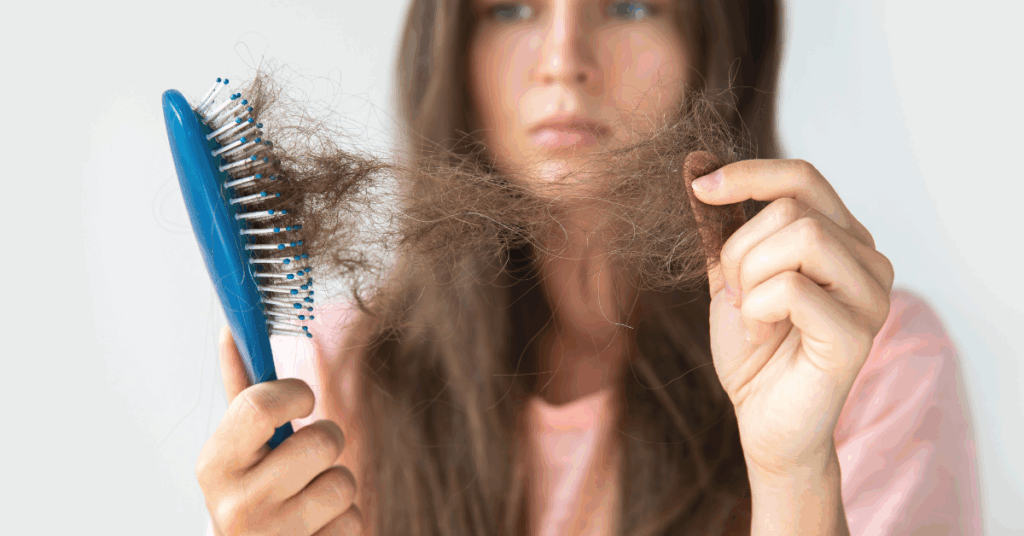
Understanding the Connection Between Weight Loss and Hair Loss
Weight loss and hair loss often appear together after bariatric surgery. This pairing may surprise you, but it’s very common. In fact, your body reacts to sudden changes in ways you might not expect. Understanding the cause helps ease worry.
Hair loss is usually temporary and tied to stress, hormones, or nutrient deficiencies. Still, that doesn’t make it less frustrating. After all, you’ve worked hard to lose weight, and now you’re facing something new. Fortunately, there are ways to cope.
Most importantly, know that weight loss and hair loss do not mean you’re doing something wrong. Instead, they show that your body is adjusting. This adjustment takes time, but you will get through it. Be patient with the process and with yourself.
Why Does Hair Fall Out After Bariatric Surgery?
Your body experiences many changes after weight loss surgery. Among them, reduced calorie intake affects nutrient absorption. This stress can trigger a type of hair shedding called telogen effluvium. It sounds scary, but it’s reversible.
During this process, more hairs than usual enter a resting phase. They fall out two to three months after surgery. Even though it’s temporary, it can feel alarming. That’s why preparation is key.
Moreover, your body prioritizes essential functions first. When nutrition is limited, hair growth becomes less important. However, once your system stabilizes, hair growth usually resumes. Staying nourished supports healing from the inside out.
How Long Will the Hair Loss Last?
Although each person is different, hair loss usually peaks around three months post-surgery. By the six-month mark, shedding often slows down. In many cases, new hair begins to grow by month nine. This timeline offers hope.
Patience becomes essential during this period. You may feel discouraged as you watch hair fall in the shower or on your pillow. However, this does not mean you’re losing hair permanently. Reassure yourself regularly.
Also, track your recovery through photos or notes. Often, progress is happening even when you can’t see it. Celebrate small wins, like fewer hairs lost per day. These signs show that your body is adjusting well.
Nutrients That Support Hair Health
Nutrients play a critical role in hair growth. After surgery, common deficiencies include protein, iron, zinc, and biotin. Addressing these needs reduces shedding and supports recovery. Talk to your doctor before starting supplements.
Protein is especially important. Your hair is made of keratin, which comes from protein. Therefore, aim to meet your daily protein goals. This helps with energy and repair.
Iron deficiency also leads to hair loss. As a result, get regular blood tests to monitor your levels. Iron, like zinc and B vitamins, keeps your hair follicles strong. A multivitamin tailored to bariatric patients may help maintain balance.
How to Eat for Stronger Hair
It’s not just about taking pills; it’s about eating mindfully. Choose whole foods packed with nutrients. Eggs, beans, leafy greens, and lean meats offer natural support for hair health. Try to keep meals balanced and consistent.
Even when appetite is low, small meals with protein matter. For example, pair yogurt with chia seeds, or a boiled egg with fruit. Tiny changes add up. These choices nurture both your body and your hair.
Over time, focus on nutrient density rather than calorie count. Your new relationship with food impacts every aspect of recovery. Hair health becomes part of the bigger healing picture. Eating well supports both beauty and strength.
Gentle Hair Care Tips During Recovery
It’s tempting to cover up or style away the loss. However, harsh treatments only worsen shedding. Instead, choose gentle hair care products. Look for sulfate-free shampoos and nourishing masks.
Also, avoid tight hairstyles or heat tools. These can pull and weaken already fragile hair. Let your hair breathe when possible. A soft hairbrush and loose styles make a difference.
Scalp massages increase circulation and promote regrowth. Moreover, they offer comfort during a difficult time. Incorporate them into your routine as a form of self-care. Remember, your hair doesn’t define you, but it deserves care.
Talking to Your Doctor About Hair Loss
When in doubt, ask. Your doctor can evaluate your hair loss and recommend lab tests. Sometimes, the cause is deeper than nutrition. Thyroid issues or hormone shifts could be involved. Clarity gives you power.
Don’t be afraid to bring it up during follow-ups. Hair loss may seem minor compared to weight loss, but your concerns matter. Doctors can suggest treatment or refer you to a specialist.
Document how much hair you’re losing and for how long. Bring pictures or hair samples if necessary. This helps your provider make accurate assessments. Open communication leads to personalized care and reassurance.
Emotional Impact of Hair Loss After Surgery
The emotional toll of weight loss and hair loss can be overwhelming. You expected to feel more confident, not less. Instead, you might avoid mirrors or feel insecure. These feelings are valid and common.
Hair is often tied to identity, femininity, and beauty. Losing it can stir grief, even after positive surgery results. Talk about these emotions with people you trust. A therapist or support group can offer relief.
Moreover, remind yourself of the bigger picture. Hair grows back, but your health gains last. You chose this path for your future, not just your appearance. Affirm your strength often. You are more than your hair.
What to Expect Long-Term
By the one-year mark, most people notice regrowth. New hair may feel different at first—finer or curlier. However, it typically thickens over time. Some areas grow faster than others, but that’s normal.
Additionally, you may find new ways to embrace your appearance. Haircuts, scarves, or even short hairstyles offer freedom. Reinvention can be empowering. Focus on what feels right for you.
Keep up your nutrition, hydration, and self-care routines. These habits continue supporting growth. Long-term success depends on consistency. Celebrate not just regrowth, but the entire journey you’ve taken.
Preventing Future Hair Loss After Weight Loss
Even after hair grows back, maintenance matters. Continue taking your bariatric supplements daily. Monitor your blood levels regularly. Prevention is easier than treatment once shedding restarts.
Stress management also plays a role. Meditation, rest, and healthy boundaries protect both mental health and hair. Balance is key to lasting wellness.
Finally, keep the conversation going with your healthcare team. Stay proactive with nutrition, check-ins, and hair-friendly habits. Over time, you’ll see results and restore your confidence. You’re investing in your future, inside and out. Are you concerned about weight loss and hair loss after surgery? Talk to our team today.
